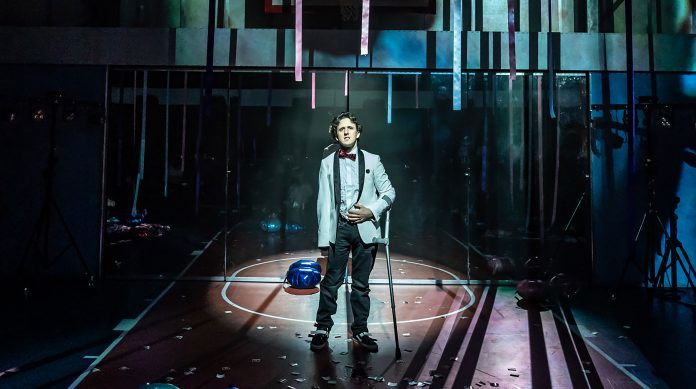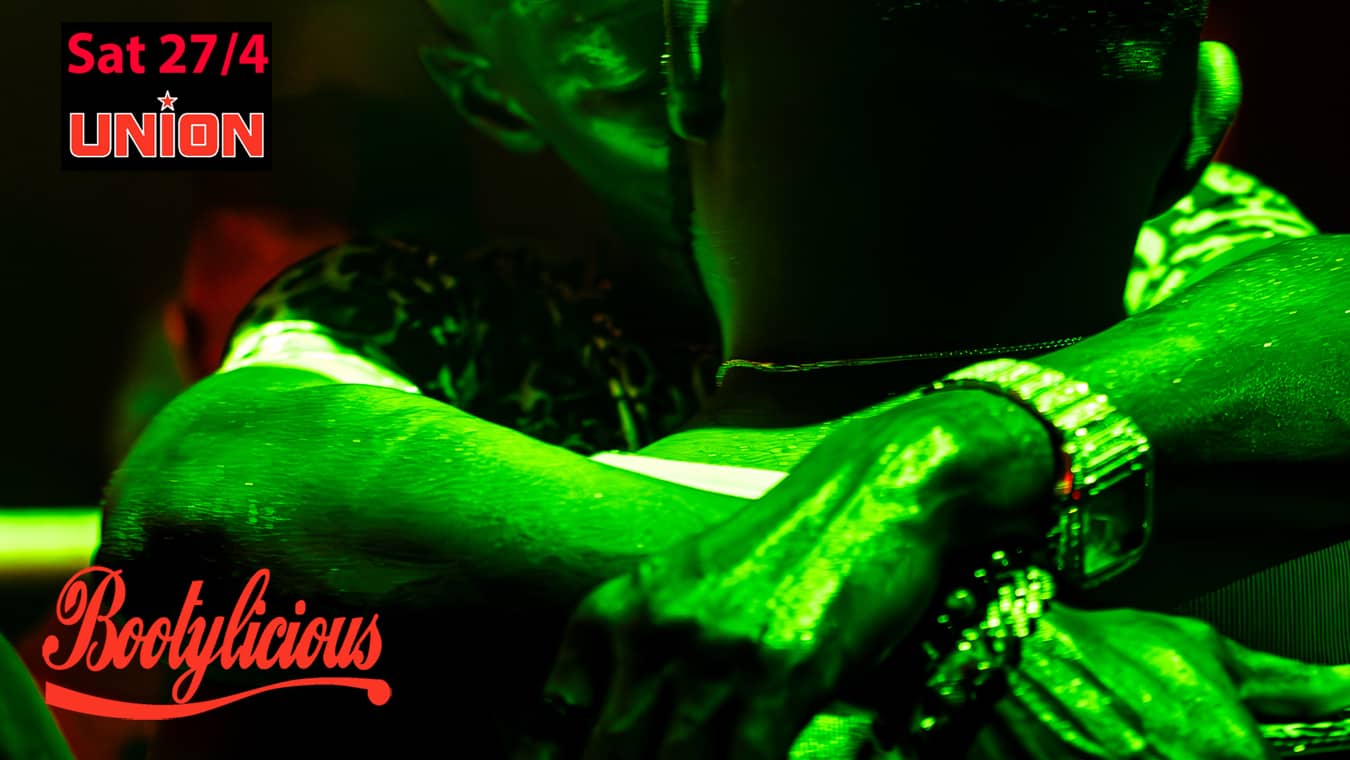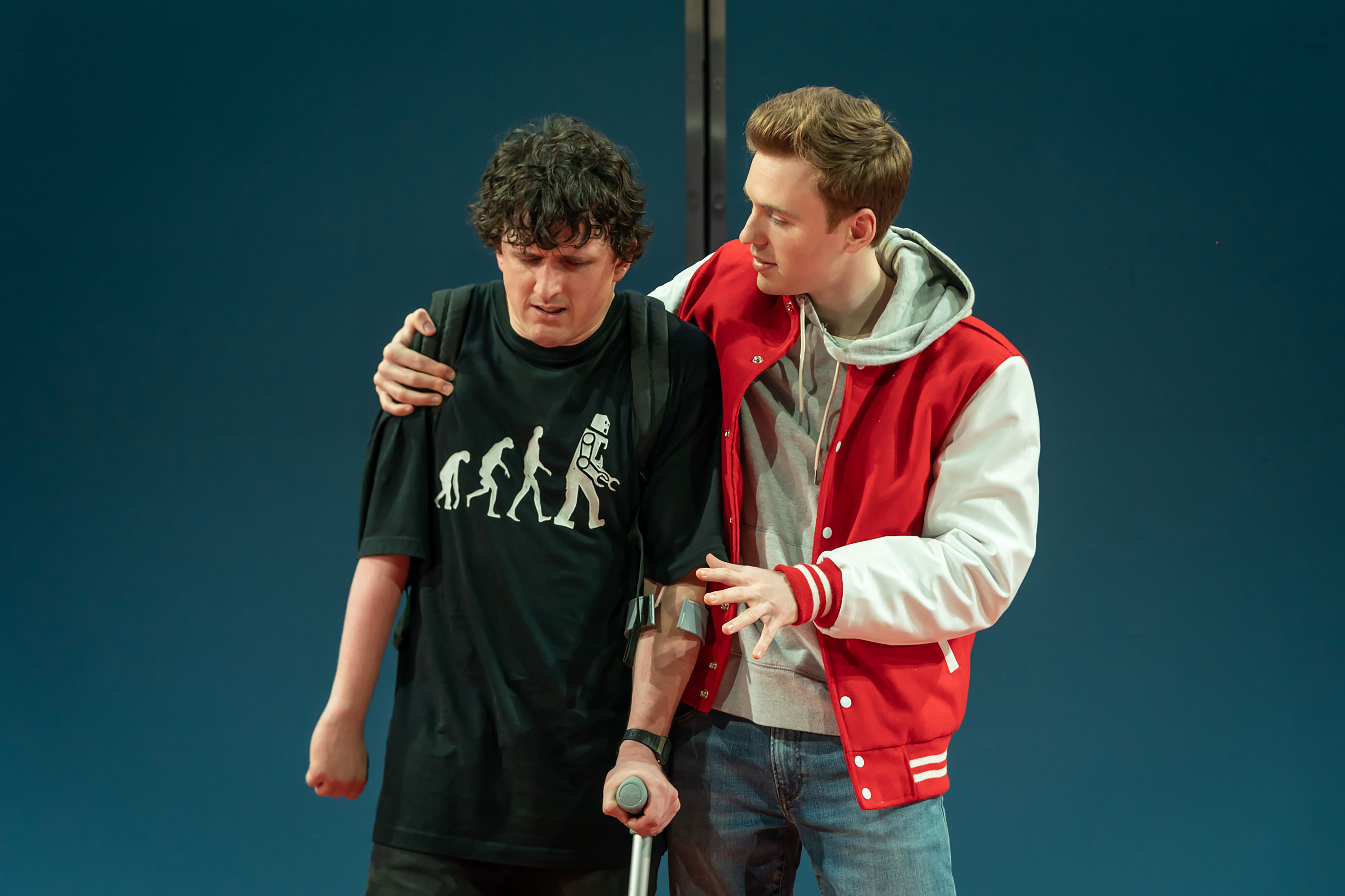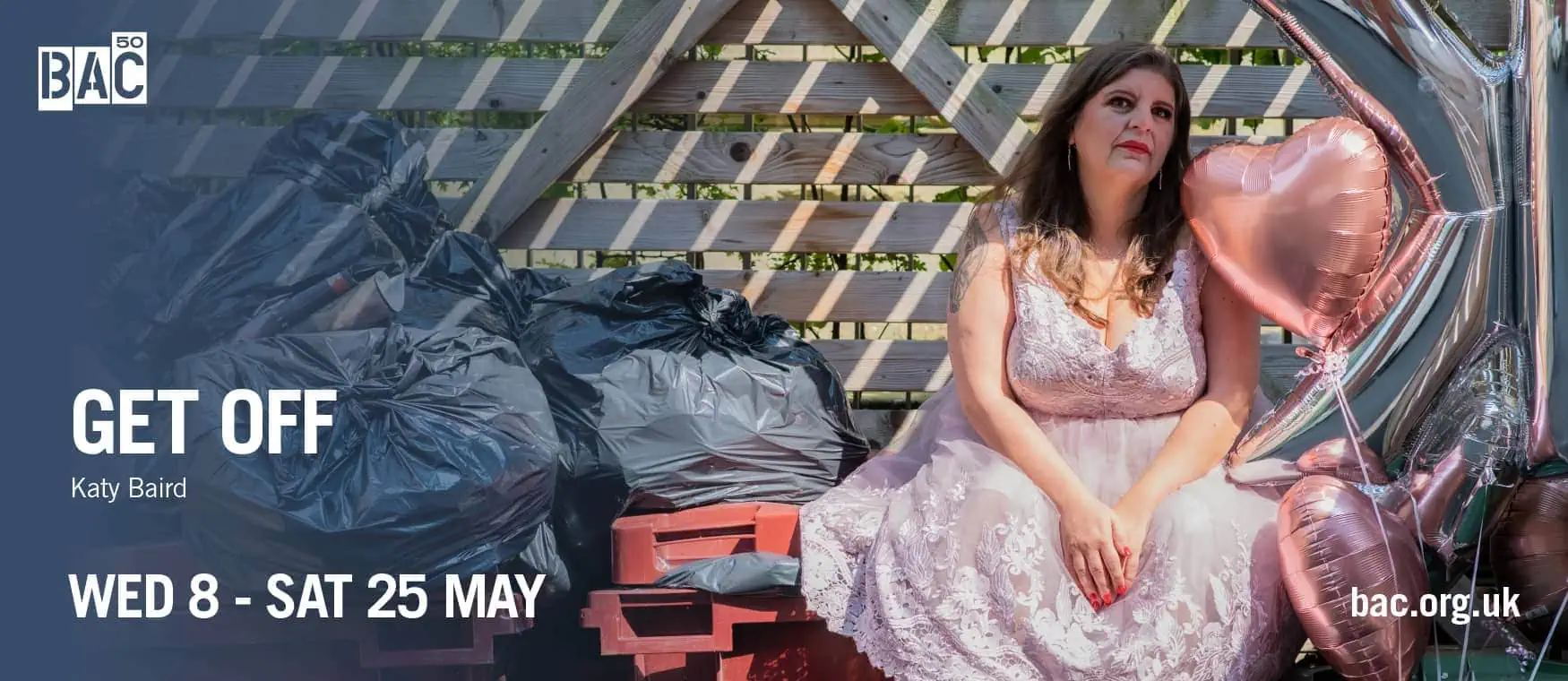We meet gay disabled actor Daniel Monks to talk industry, representation and tackling an adolescent Richard III in Teenage Dick at the Donmar.
Sitting in the comfort of his dressing room, his prep space cluttered with notes from well-wishers, Daniel Monks is the image of a young actor on the rise. Sandwiched between an edible bouquet of sweets and his crumpled costume shoes, he beams in the glow of his dressing table. Having only landed in London a year ago, it didn’t take long for Monks to have his face flyered across the city promoting his West End debut at the Donmar.
With a feature film and an AACTA nomination under his belt, it’s perhaps best to simply say that he’s just killing it. Curious about the actor who’d been garnering universal praise for his performance as a teenage Richard III in Teenage Dick, and perhaps needing an explanation as to why he’d spent an afternoon searching the internet for “teenage dick play”, Ifan Llewelyn caught up with the actor to discuss navigating the industry as someone who has the odds stacked up against them.
How have you been finding London?
I love it. Industry-wise, Australia is heading in the right direction but I feel like London and the UK, in terms of inclusivity for disabled actors, is a good decade ahead. There are so many more opportunities here. I made a feature film, Pulse, and that came to the BFI Flare Film Festival last year in March. I have an Irish passport because of an Irish grandfather, so I was thinking of getting some UK rep.
What were the barriers you were faced with back in Australia?
I find with theatre, they’re getting much better, but in film and TV it’s really hard for a disabled actor. You just don’t really get seen for anything unless the character’s written to have your specific disability. Here, 80% of my auditions aren’t even written as disabled.
You were so close to not being an actor at all, right?
Totally. At eleven, I almost died as well. I’ve always wanted to be an actor, my mum was an actress then became a casting director when I was two. When I became disabled at eleven I really thought “well, now I can’t do this anymore” so I went into filmmaking. It was only after film school, when I was making Pulse, that I thought: the lead character is based on me, it’s very personal to me, if I’m ever going to act I can give myself this opportunity. Acting in that was my favourite part of the entire process. It made me realise that acting’s what I want to do. I may as well go for the thing I want most.
How was creating a feature film that was so personal, and travelling the world with it?
It was a long process. I started writing it when I was 20, we shot it when I was 25, finished when I was 27, had an international premiere when I was 28. Now I’m 30. It’s been my entire 20s. But it was such a beautiful experience. It was my first-ever acting thing. It really emboldened me.
Was transitioning from film to stage difficult?
I’d done a couple of independent shows, but my first main stage show was The Real and Imagined History of The Elephant Man, directed by Matt Lutton who beautifully took a risk on me. Not only had I not done a big show before, but I was playing the lead who was in every scene and had to carry the show. The rehearsal process was a steep learning curve. I learnt so much on that job. Playing Joseph Merrick was a dream, he’s a personal hero of mine.
With any minority and public figure, there’s a reductive stereotype that people have about them. For me, often people with disabilities are pitied, or seen as meek, and it’s not about counteracting that by saying all disabled people are powerful. We are everything. It’s about having more complexity, more nuance and more humanity. When it comes to Joseph, his story was told by abled people and their perception of him.
It’s so similar to the discourse surrounding gay and trans stories. Why do able-bodied people and straight people feel they own these stories?
People from positions of privilege, they see themselves as the default in our society. They’ve been the ones ruling the world, and in charge of the narrative. It’s so important that people from minorities, especially underrepresented minorities, get to tell their narrative from their perspective. That applies across the board. Stories about disability, LGBTQ+ stories, women’s stories. It’s an exciting time because we’re finally challenging the stories we’ve been told.
Being gay and disabled, something both of those minorities share is often gay and disabled people aren’t born into gay or disabled families. In my family, I’m the only gay person and I’m the only disabled person. As a minority, it’s hard when you’re not born into your community. When you’re trying to discover who you are in the world, it’s a hard thing to feel alone in that. When you’re fed narratives about being the way you are, it’s important that they be authentic.
This year, it feels like the tide for disabled performers has changed. We saw Selma Blair proudly walking the Vanity Fair Oscars Party with a cane.
I was so impressed with her. In so many of the interviews, you could tell that they were trying to paint her disability as tragedy. It was impressive how she kept designing her own narrative. Being sexy and powerful and beautiful and disabled. I have so much respect for her.
Also in theatre, Ali Stroker picking up the Tony. Do you think these strides have an effect on the industry as a whole?
Yeah! Part of the reason that I wanted to make the leap to London was that it felt like there’s a growth in awareness here, in the need for inclusivity. If people didn’t know how to do that, there was a desire to learn and to be better. After Pulse, I went for acting jobs for stuff that I hadn’t made for myself, and in Australia that was unheard of.
What’s the key to embracing and celebrating disabled performers, rather than just including you to tick some diversity box?
Employing and commissioning disabled playwrights, and disabled directors, and disabled film and theatre makers. This needs to not be a fad and be truly integrated and included in the makeup of this industry. Otherwise, it can become a token thing.
Disabled people from the past are often either pitied or vilified. Joseph Merrick seems to be the former, and Richard III is arguably the latter. Was there any trepidation in taking on the role for Teenage Dick?
My two dream roles for the past five years have been Joseph Merrick and Richard III. Dreams come true! They are the two extremes of the spectrum of how we’re seen. Richard III has been played by disabled actors before, but I’d only personally seen able-bodied actors pretending to be disabled. Those productions never felt authentic to me. A point of view of his story was missing, so I felt I had something to offer. Playing the villain, I hope you also see the human side to him without it blunting the sharper sides of him. It feels like a more humanistic approach who is so often just disabled and evil.
This re-imaging in a high school is also a lot of fun. I obviously didn’t go to an American high school, but I grew up on those American high school teen movies. This very much plays with that genre of movie. It’s so fun to live in that world, play with those conventions and tropes. Australian high schools are basically just Summer Heights High.
It also must be LOVELY to be cast as a 17-year-old in your 30s.
Thank GOD for the theatre.
Teenage Dick is running at the Donmar Wearhouse, Seven Dials WC2H 9LX ‘til 1st February. DonmarWarehouse.com
READ MORE related to Teenage Dick – Daniel Monks interview:
Freedom of expression – the liberating artwork of Nicholas Kontaxis













